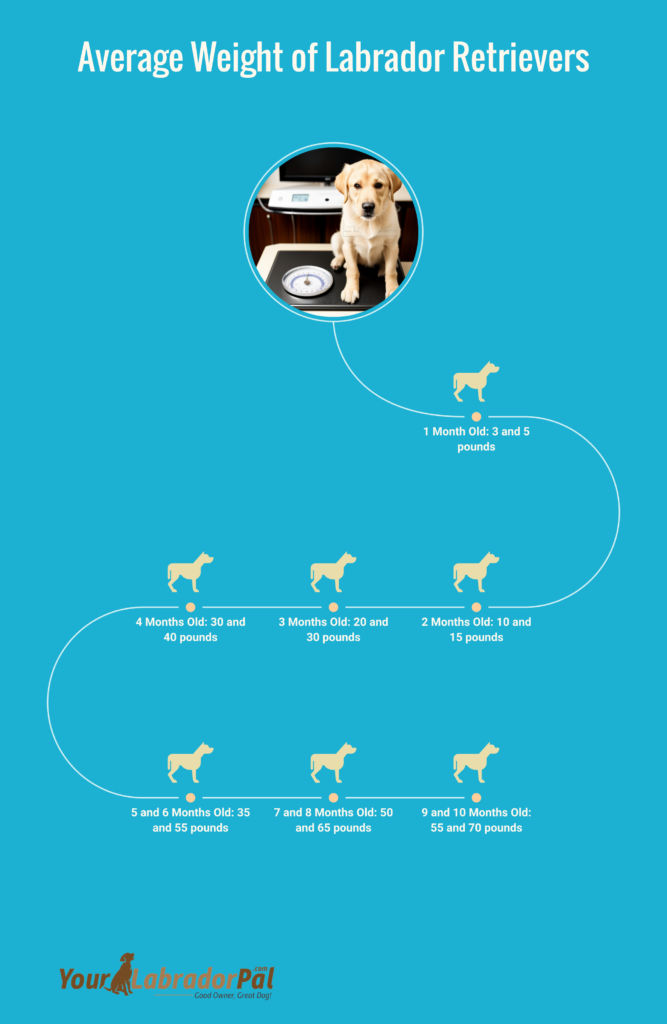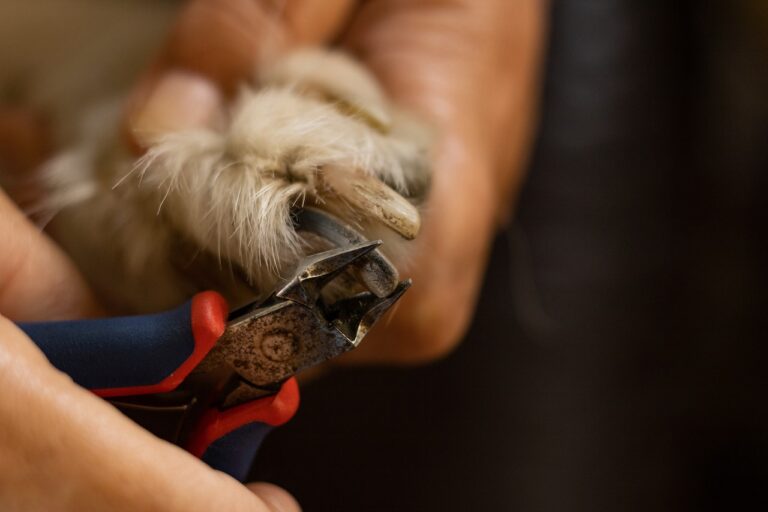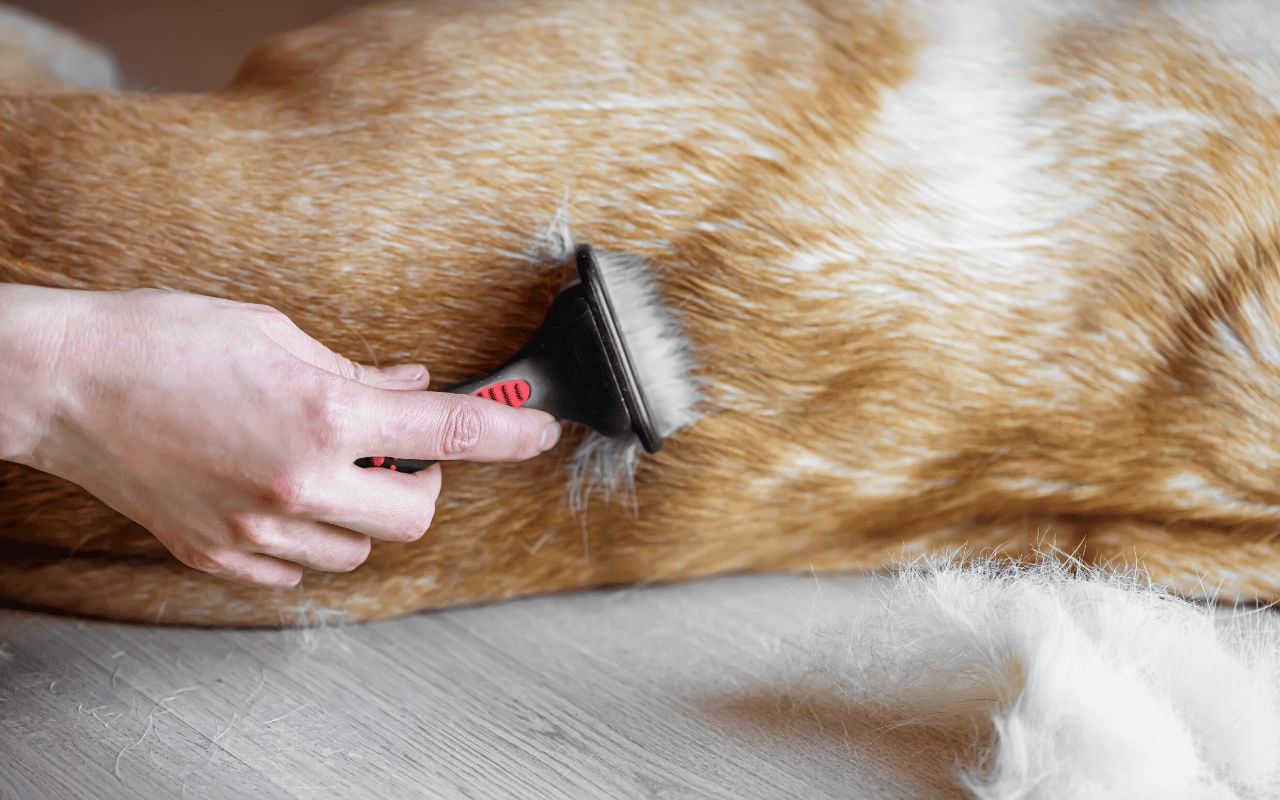How Much Does a Labrador Retriever Weigh? Understanding Dog’s Weight
Have you ever wondered how much does a Labrador Retriever weigh? Well, let me tell you from personal experience, they can vary quite a bit. Our family Labrador weighs around 80 pounds, which is pretty average for a male labrador.
Generally, Lab weight varies depending on the dog’s age, type/breed, and developmental age. Determining the appropriate weight for your pup can be challenging. While English Labs are typically heavier than American Labs, other factors besides build influence a dog’s optimal weight. So let’s take a closer look at how much does a labrador retriever weigh and which factors influence its weight.
A Brief Overview of Labrador Retrievers
Labrador Retrievers, also known as “Labs,” are one of the most popular dog breeds in the world. A breed originating from the island of Newfoundland in Canada, Labs have been a favorite among families, hunting enthusiasts, and those needing guide dogs. Let’s discuss some of their personality and traits.
🔵Loving Breed
Labrador Retrievers are a loving breed. They are known to be great with children and make excellent family pets. They are naturally inclined to please their owners, often wagging their tails and seeking attention. Their floppy ears, big brown eyes, and soft fur make them absolutely adorable. It’s no surprise that so many people fall in love with them.
🔵Water Lover
Labs are famous for their love of water. They were originally bred as working dogs, specifically for retrieving birds for hunters. It is why they have an innate love for the water. Whether it’s swimming in a pool or playing in a lake, Labs are happiest when they’re in and around water. If you’re going on a beach vacation or a lakeside trip, you can bet your Lab will be begging to come along.
🔵Intelligence
Another characteristic that makes Labs unique is their intelligence. They are highly trainable, which is why they’re often used as guide dogs for the blind or therapy dogs. They are also capable of picking up tricks and commands incredibly quickly. Because of their eagerness to learn, they need plenty of mental stimulation and physical exercise to keep them happy and healthy. A bored Lab can become destructive and unhappy, so give them lots of love and attention.
🔵Various Colors
Labs come in three colors: black, chocolate, and yellow. Their coats are short and dense, making them easy to groom. They shed quite a bit, especially during the summer months when they’re shedding their winter coat, but regular brushing can help reduce the hair in your home. Labs have a lifespan of anywhere from 10 to 12 years and can live long, healthy lives with proper care and nutrition.
🔵All Around Good Dogs
Lastly, Labs are all-around good dogs. Whether you’re looking for a companion for your children, a playmate for your other pets, or a hunting and retrieving partner, Labs will not disappoint. They’re known for their patience, loyalty, and unwavering love. A Lab is a perfect choice if you’re looking for a dog that will be your best friend for life.
While there are many dog breeds to choose from, Labrador Retrievers stand out as one of the most beloved.
How Much Does a Labrador Retriever Weigh?
So how much does a Labrador retriever weigh? I will discuss the average weight of Labrador Retrievers in their first ten months of life below.
1 Month Old:
A Labrador puppy usually weighs between 3 and 5 pounds (1.4 and 2.3 kg) at one-month-old. These labrador puppies are still in the very early stages of labrador retriever growth and have a lot of development to do in the coming months. As they transition from nursing to solid food, it’s important to feed them high-quality puppy food that matches their nutritional needs.
2 Months Old:
By two months old, Labrador Retriever puppies have doubled their weight. They weigh between 10 and 15 pounds (4.5 and 6.8 kg). Their appetite will increase at this stage, and they’ll need to eat more food to keep up with their growth. Introducing them to regular exercise to help build strong bones and muscles is also important.
3 Months Old:
At three months old, Labrador Retriever puppies can weigh between 20 and 30 pounds (9.1 and 13.6 kg). They’re becoming more active and exploring their environment, so it’s essential to provide them with plenty of toys and mental stimulation to keep them engaged. At this stage, most puppies will also start teething, so provide them with safe and durable chew toys.
4 Months Old:
At four months old, a Lab puppy weigh between 30 and 40 pounds (13.6 and 18.1 kg). They’re growing rapidly and need a balanced diet that’s rich in protein, vitamins, and minerals. It’s also a good time to start training them to follow basic commands and socializing them with other dogs and people.
5 and 6 Months Old:
Between five and six months old, a Labrador Retriever puppy can weigh between 35 and 55 pounds (15.9 and 24.9 kg). They’re becoming more confident and energetic, and it’s a great time to start taking them on long walks and hikes. However, don’t forget to monitor their activity levels and gradually increase their endurance to avoid injury.
7 and 8 Months Old:
A Labrador Retriever puppy can weigh between 50 and 65 pounds (22.7 and 29.5 kg) at seven and eight months old. They’re reaching their adolescent stage and may become more stubborn or independent. Patience and consistency are key when training them during this phase. Maintaining a healthy diet and regular exercise routine is important to prevent obesity and related health issues.
9 and 10 Months Old:
By nine and ten months old, a Labrador Retriever puppy can weigh between 55 and 70 pounds (25 and 31.8 kg). They’re almost fully grown and may have specific nutritional and exercise needs depending on their size and activity level. Regular vet check-ups and consultations with a dog nutritionist can help ensure your furry friend gets the best care possible.
While every dog is different, understanding the average weight of Labrador Retrievers at different stages of their life can help you monitor their growth and provide them with the best possible care.
Is Your Labrador Retriever Experiencing Normal Growth?
Rapid growth or stunted growth can be signs of underlying health issues, and as a responsible pet owner, you should take the necessary steps to ensure your Lab is healthy. But what factors determine whether or not a Labrador Retriever’s growth is normal?
❕Nutrition
One of the key factors that can impact the growth of your Labrador Retriever is their diet. As a puppy, their diet must be carefully monitored to ensure they get the right amount of nutrients to support their growth. Lab puppies require a higher protein and fat content diet, which supports building healthy muscles and helps them grow steadily. Once they are fully grown, it is important to adjust their diet to ensure they stay healthy and do not become obese.
❕Exercise
Another factor that can impact the growth of your Labrador Retriever is the amount of exercise they are getting. Labs are known for being active and energetic, requiring a lot of exercise to stay healthy and happy. Regular exercise can help maintain strong and healthy bones and keep their muscles toned. However, it is important to ensure that their exercise routine is appropriate for their age and size to avoid over-exercising them, which can lead to health issues.
❕Genetics
The genetics of your Labrador Retriever can also have an impact on their growth. Each Lab will grow differently and may reach its full size at different times. Some Labs may grow faster than others, while some may take a little longer to reach their full size. Factors such as diet and exercise can also impact how fast or slow they grow.
❕Breed Standards
Every dog breed has a specific set of standards that breeders adhere to when breeding dogs. Labs are usually anywhere from 55 to 80 pounds and grow as high as 22.5 inches tall. Keeping up to these standards helps breeders ensure that each pup is adorable and healthy. Although it doesn’t mean your pup will always fit perfectly in those standards – every dog is different physiology-wise, making some pups taller or shorter than others.
Remember to consult your veterinarian if you have concerns about your Lab’s growth development.
Different Labradors Growth Distinction
Although they are under the same breed, there are two different types of common Labradors: English and American Labradors. If you are considering adopting one, it is essential to understand the differences between their growth distinction.
English Labradors tend to be wider and more muscular than their American counterparts. They have a stocky body build and a thick, waterproof coat that can give them a more massive appearance. English Labs are typically shorter, with a height of around 22 inches. They look more like a solid mass of muscle and fur, with broader heads, shorter legs, and wider chests.
On the other hand, American Labradors have a slender build with a slightly finer coat, making them look more proportionate. They stand around 23-24 inches in height, and although they may appear leaner than their English counterparts, they are still strong and excellent swimmers. American Labs have more extended legs, a slimmer head, and a more narrow chest, giving them a more streamlined appearance.
The growth distinctions between English and American Labradors can make them look very different, in addition to personality characteristics unique to each breed. American Labs are more active and independent than their English counterparts due to their ancestry as hunting retrievers. English Labs are more laid back and cuddly, making them great family pets.
English Labs also tend to become overweight more easily than American Labs, primarily due to their stocky build. Monitoring their food intake and exercise regularly is important to maintain a healthy weight. On the other hand, American Labs have more energy to explore and often need more physical activity as a daily exercise routine.
Tips for Properly Feeding a Lab to Maintain Healthy Weight
Labs tend to quickly put on weight, and if not managed properly, this can lead to health issues. So proper nutrition and exercise are essential to ensure your Labrador Retriever stays healthy and fit. Here are some tips to help maintain a healthy weight:
1: Analyze Your Lab’s Diet
Labrador Retrievers can be greedy eaters, leading to overeating and weight gain. So, it is important to analyze your Lab’s diet and measure their food portions. By doing so, you can ensure that your Lab is getting the necessary nutrition and avoid overfeeding. It is also a good idea to choose high-quality dog food and avoid feeding them with table scraps, which can make them overweight.
2: Opt for Quality Dog Food
Avoid dog food brands that contain fillers, artificial flavors, and preservatives. Instead, choose dog food brands that use quality ingredients like balanced proteins, limited or no grains, and vegetables and fruits. It will provide your Lab with essential nutrients while limiting their calorie intake, keeping their weight in check.
3: Read Labels
When choosing dog food, it’s essential to read the label carefully. Look for protein sources such as chicken, beef, or fish. Also, check for the calorie count per serving to ensure that you’re feeding your Lab the appropriate amount of food. Feeding your lab food with fewer calories per cup will also help them feel full and satisfied, so they don’t overeat.
4: Avoid Table Scraps
Labs are notorious for begging, but feeding them table scraps can contribute to unhealthy weight gain. Many human foods contain excessive salt, sugar, and fat, which can cause health problems in your Lab if consumed regularly. Instead, offer your Lab healthy treats like carrots, cucumbers, or treats specially made for dogs.
5: Portion Control
Feeding your Lab the right amount of food is key to maintaining a healthy weight. Start with the food recommendation on the package and adjust as necessary, and keep in mind that every dog is different and will require a different amount of food. Balancing the right amount of food with exercise will give your Lab the right amount of energy without overfeeding them.
6: Monitor Their Health
Provide regular veterinary care for your Labrador, including weigh-ins and health checks. Regular veterinary check-ups help to detect obesity, preventing further complications like joint issues and breathing difficulties. Keep a record of their food intake, weight, and activities, making it much easier for you and the veterinarian to monitor their health.
Keeping your Lab at a healthy weight will not only help prevent health problems associated with obesity but will also provide a happier and more active life for your furry friend.
Health Risks Associated with Overweight Labrador Retrievers
So as mentioned, obesity is a common problem among Labradors and can lead to various health problems. If your Labrador is overweight, it may suffer from several physical issues, such as:
◼️Diabetes
One of the most significant health risks associated with overweight Labrador Retrievers is diabetes. Obesity increases insulin resistance in dogs, leading to Type 2 diabetes. This chronic condition can be debilitating and life-threatening if left untreated. The symptoms of diabetes in dogs include excessive thirst, frequent urination, increased hunger, and lethargy. If you notice these signs in your Labrador, immediately take them to the vet.
◼️Skeletal Stress
Overweight Labradors are more prone to joint complications, which can lead to skeletal stress and damage. Their joints are under constant pressure, leading to wear and tear on cartilage and ligaments. This can cause chronic pain, inflammation, and arthritis in dogs. Hip dysplasia is also more common in overweight dogs, and it can be a severe condition that affects their mobility and quality of life.
◼️Heat Intolerance and Decreased Resistance
Overweight Labradors may have a decreased resistance to diseases. They are more prone to infections, which can take longer to recover from. Additionally, obese dogs may have difficulty regulating their body temperature, leading to heat stress in hot climates. A lack of physical activity can also lead to decreased endurance and fatigue in dogs.
◼️Respiratory Problems
Obese Labradors may experience breathing difficulties due to the excess fat putting pressure on their lungs and airways. They are also susceptible to high blood pressure and heart disease. Being overweight puts extra pressure on their cardiovascular system, increasing their risk of heart failure and other diseases.
◼️Decreased Liver Function
One major health issue that overweight Labrador Retrievers can face is decreased liver function. Liver diseases such as hepatic lipidosis can develop when the liver gets overloaded with fat deposits, and this can lead to serious health issues. Obese dogs also tend to accumulate fat within their liver cells, irritating the liver, further decreasing its efficiency.
◼️Digestive Disorders
Overweight Labrador Retrievers face digestive problems since they eat too much too quickly, leading to complications. They can experience bloating and gas, which can cause discomfort or even colic. Additionally, constipation, flatulence, and diarrhea are common digestive issues overweight dogs suffer. Without proper treatment, these conditions could lead to larger health problems.
◼️Decreased Immune Function
Carrying too much weight can also profoundly affect the immune systems of Labrador Retrievers. Research has shown overweight dogs are susceptible to immune-related disorders. They are more vulnerable to bacterial and viral infections, and their bodies do not make enough white blood cells to fight off infections.
◼️Hair and Skin Problems
The extra weight strains dogs’ joints, making it challenging for overweight dogs to groom themselves properly. Consequently, the skin can become dry and prone to infection, leading to hair loss and itchiness. Overweight dogs are also at a higher risk of developing chronic skin conditions, such as hotspots and contact dermatitis.
Obesity is a serious health issue that affects many Labrador Retrievers. So as pet owners, don’t take it lightly. Take the necessary steps to help your Lab stay in shape and live a longer, healthier life! Regular exercise, appropriate nutrition, and proper veterinary care can help prevent obesity from developing.
How to Treat an Underweight Labrador
Aside from obesity, there are also other health risks associated with being underweight. Being significantly underweight can lead to malnutrition, organ dysfunction, and weakened immunity. To help your Lab put on weight in a healthy way, here are some steps you can take:
1: Slowly Increase Food Intake
The most common approach to weight gain is to increase food intake. However, you must be careful with the type and amount of food you give your pet. You should gradually increase the meal amount and monitor weight gain. A good rule of thumb is to increase their food intake by about 10% per week. If your dog doesn’t gain weight at this level, you can increase up to 15% per week. Additionally, ensure that the food is rich in nutrients, and avoid foods high in calories but low in nutrition.
2: Regular Feeding Schedule
Dogs love routines, and feeding them should be part of their regular schedule. A regular feeding schedule helps your dog maintain an appetite and keep their metabolism regular. If your dog is underweight, several small meals throughout the day can help them gain weight without overeating. Having a consistent feeding schedule will also help you monitor your dog’s health and prevent obesity.
3: Snacks and Treats in Moderation
While snacks and treats can help with weight gain, they should not replace your pet’s normal meals. You should give treats in moderation and choose healthy and nutritious snacks. Ensure the snacks are made from natural ingredients, such as lean meats, vegetables, and fruits. Never give your dog sweets and chocolates, as they can lead to digestion problems.
4: High-Quality Supplements
Supplements are also essential in helping your underweight Labrador to gain weight. They provide additional nutrients that will help to boost your dog’s immune system and overall health. Some of the most common supplements used include omega-3 and omega-6 fatty acid supplements. These have been shown to help boost your dog’s immune system, reduce inflammation, and improve the overall health of their skin and coat.
5: Consult With a Vet
Lastly, if your dog is still underweight even after trying all the above methods, it’s time to seek help from a professional. Your vet will be able to diagnose any underlying conditions that might be affecting your pet’s weight. They can also recommend a specialized diet or additional supplements that can help your pet gain weight.
An underweight Labrador can be a sign of underlying health issues, and addressing the issue as soon as possible is essential.
Frequently Asked Questions
Are Labradors medium or large?
Sure, they may not be as massive as Great Danes or Mastiffs, but they’re not small or medium-sized like a Dachshund or Beagle. Whenever I see a Labrador, they tower over other dogs around them. Perhaps it’s their sturdy build or the playful demeanor that makes them appear larger than life. Thus, Labrador is considered a large dog.
How skinny is too skinny for a labrador?
When I first got my labrador, I had no idea what his ideal labrador retriever weight should be. I assumed that the skinnier, the better. Boy, was I wrong. I remember taking him to the vet and the doctor telling me he was severely underweight. If I had known back then that there was such a thing as being too skinny for a labrador, I would have made sure to keep a closer eye on his weight. But now, after years of experience, I can confidently say that a labrador shouldn’t be too skinny. In fact, you should be able to feel their ribs but not see them. And just like with humans, maintaining a healthy weight is essential for their overall health and well-being.
How can I tell if my Labrador is underweight?
It’s not always easy to tell if your pup is at a healthy weight, especially if you need help figuring out what to look for. I checked the ribs – if you can feel them easily, but they’re not sticking out, that’s a good sign. I also monitored my labrador’s appetite – if they’re eating regularly and seem satisfied after meals, that’s another indicator that they’re at a healthy weight. And, of course, if you’re still unsure, it never hurts to take them to the vet for a check-up.
Why is my Labrador malnourished?
From my experience, there could be a few reasons for this. Perhaps your dog isn’t eating enough or the right food, or maybe they have an underlying health condition that’s making it difficult for them to digest food properly.
Do Labrador Retrievers gain weight easily?
From what I’ve seen, they tend to put on weight pretty easily if they don’t get enough exercise or their diet isn’t properly regulated. If you’re worried about your Lab gaining too much weight, ensure they get plenty of exercise and eat nutritious, high-quality food. That way, you can ensure that your pup is staying at a healthy weight without having to worry about them becoming overweight or obese.
Final Words
I have been wondering myself how much does a labrador retriever weigh, so after all the research, I’ve found that the average weight for these pups is between 55 and 80 pounds. However, there are some instances where Labs can weigh up to 100 pounds, especially if they’re a bit on the larger side or not getting enough exercise. It’s important to keep in mind that while weight can be an important factor, it’s just as important to focus on your pet’s overall health and well-being. So whether your Lab is on the lighter or heavier side, what matters most is that they’re happy and healthy!












